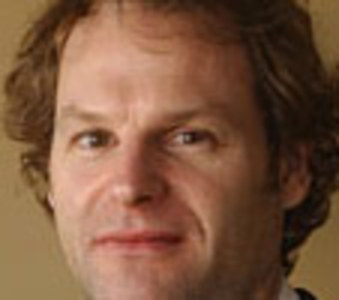MONTREAL -- Henri-Paul Rousseau strode to his own defence yesterday, insisting the fruits of his nearly six-year reign at the Caisse de dépôt et placement du Québec left the pension fund manager so flush it can easily ride out a prolonged market downturn.
But his rosy portrayal of his own management of the Caisse, delivered before an overflowing crowd that included dozens of Montreal business elites, failed to quell widespread criticism in Quebec that the heady returns earned by the pension fund manager in previous years masked a risky investment policy with flaws that became punishingly apparent when markets crashed.
The Caisse, Canada's biggest institutional investor, posted a minus-25-per-cent return in 2008, equivalent to a $39.8-billion loss - far underperforming the median return of minus-18.4-per-cent at large Canadian pension funds. But Mr. Rousseau said he is not to blame for that.
Mr. Rousseau, who quit the Caisse in mid-2008 only months into his second five-year mandate, attributed the bulk of the pension fund manager's difficulties to events beyond his control that arose after his departure. His sudden move to a senior job at Power Corp. of Canada came before the global market meltdown left the Caisse scrambling to unwind billions of dollars in derivatives contracts and sell stocks to generate quick cash.
"No diversification policy or risk management policy on earth can protect you from that kind of synchronized effect, which happened for the first time in 80 years," he told more than 700 people who paid up to $95 to hear his version of the Caisse debacle.
"The financial history of 2008 was essentially written five months after I left. I don't believe I am trying to escape my own responsibility by pointing this out."
The hour-long speech - broadcast live on Quebec's all news channels - was a major happening in Quebec, where the fortunes of the Caisse are closely monitored by politicians and the public. The institution, which saw its net assets slide to $120-billion as of Dec. 31, manages the assets of more than two dozen provincial pension and insurance funds, led by the Quebec Pension Plan.
Mr. Rousseau's decision to plead his own case follows weeks of public debate about the Caisse and wrangling between the governing Liberals and opposition parties regarding parliamentary hearings into the 2008 debacle. Groups representing retirees have also called for a public inquiry.
There has been palpable anger about management of the province's so-called "nest egg" and immediate reaction to Mr. Rousseau's speech suggests it is not about to dissipate.
Pressed later by reporters, however, Mr. Rousseau said he had nothing to apologize for. "I won't take responsibility for the [global] financial crisis." He also expressed doubts about the usefulness of a public inquiry. "What they'd find would be essentially what I've just said [in the speech] - whether [the inquiry] is public, private or extraterrestrial."
Mr. Rousseau chalked up the Caisse's dismal 2008 performance to two major factors: strict accounting rules that forced the Caisse to write down the book value of its real estate assets, even though they continue to generate strong revenue, and a currency hedging policy that he actually deemed to be more conservative than the one followed by most other pension funds.
Mr. Rousseau criticized so-called mark-to-market accounting rules that forced the Caisse to slash the value of its real estate holdings by 30 per cent, though hundreds of its properties will see rents increase this year.
And though Mr. Rousseau took "full responsibility" for the Caisse's decision to invest $13.2-billion in now highly devalued non-bank asset-backed commercial paper, he minimized its impact on the Caisse's overall results. The $3.9-billion writedown taken in 2008 on the Caisse's remaining $12.8-billion in non-bank ABCP, he stressed, represented only 10 per cent of the Caisse's overall losses last year.
On top of that, he blamed the mid-2007 breakdown of the domestic non-bank ABCP market on a "small exception" in Canada regarding the lack of enforceability of liquidity guarantees provided by banks. And whereas central banks around the world rushed to support their own ABCP markets, he noted that the Bank of Canada stood on the sidelines.
That froze more than $32-billion in toxic paper on the books of the Caisse and other investors. Half of the paper is held by Quebec-based institutions, an anomaly Mr. Rousseau dismissed as "one of life's mysteries." Mr. Rousseau also called on the Bank of Canada to add non-bank ABCP to its list of eligible securities under the central bank's sale and repurchase policy. The move would inject $15-billion into financial markets and free up institutions such as the Caisse to invest the funds elsewhere.
The Caisse has taken a total of $6-billion in provisions against its non-bank ABCP. But Mr. Rousseau expressed confidence that its actual losses on the paper will come in well below that figure. Besides, he added, superior returns during his tenure left the Caisse with a $15-billion cushion over what it would have earned had it only matched its historical performance.




























Laissez un commentaire Votre adresse courriel ne sera pas publiée.
Veuillez vous connecter afin de laisser un commentaire.
Aucun commentaire trouvé